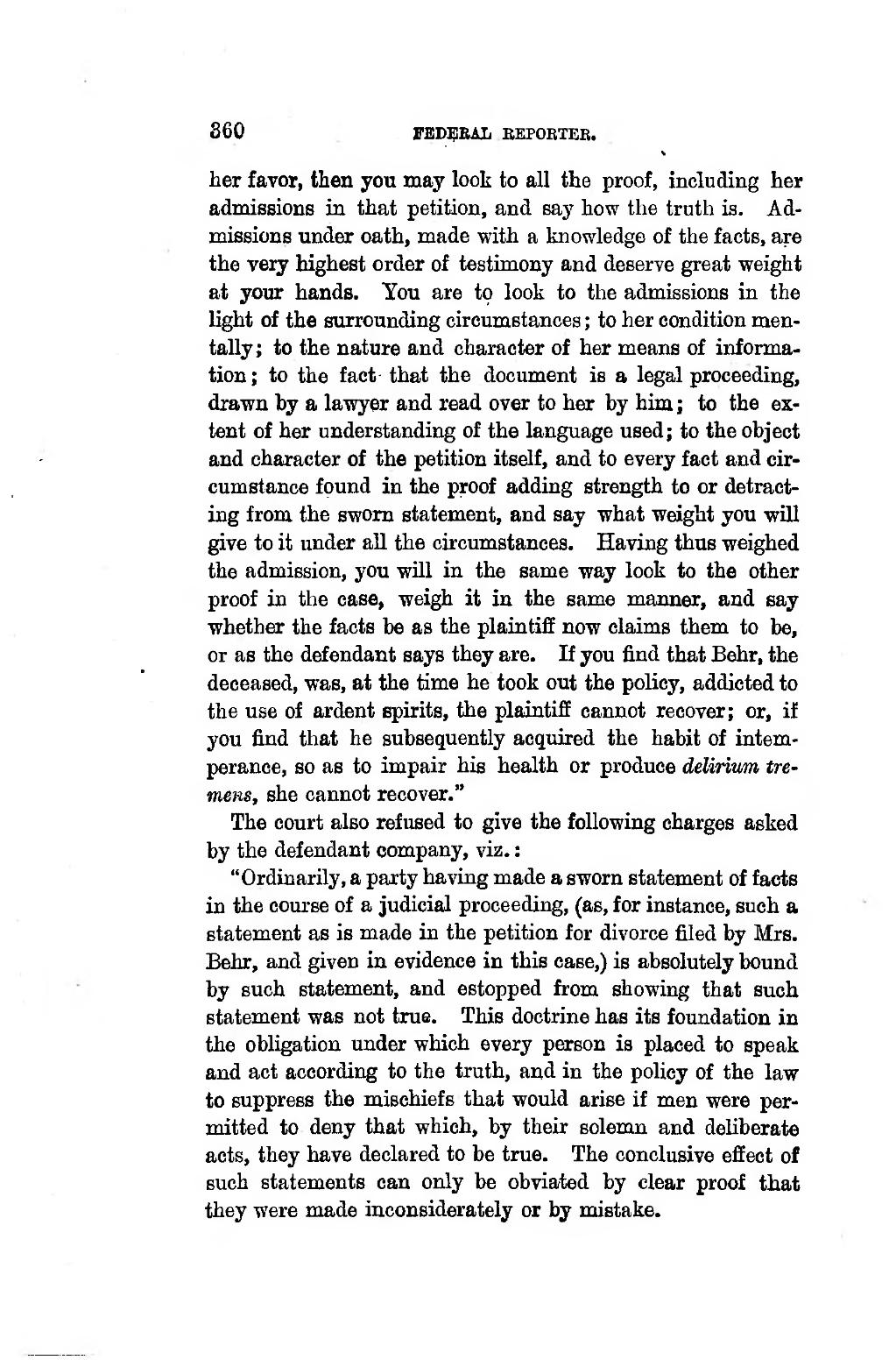360 PEDÇBAIj EEPORTEK. �her favor, then you may look to ail the proof, including her admissions in that petition, and say how the truth is. Ad- naissions under oath, made with a knowledge of tiie facts, are the very highest order of testimony and deserve great weight at your hands. You are to look to the admissions in the light of the Burrounding cireumstances ; to her condition men- tally ; to the nature and character of her means of informa- tion; to the fact that the document is a legal proceeding, drawQ by a lawyer and read over to her by him ; to the es- tent of her understanding of the language used; to the object and character of the petition itself, and to every fact and cir- cumstance found in the proof adding strength to or detract- ing from the sworn statement, and say what weight you will give to it under ail the circumstancea. Having thus weighed the admission, you will in the same -way look to the other proof in the case, weigh it in the same manner, and say whether the facts be as the plaintifif now claims them to be, or as the defendant says they are. If you find that Behr, the deceased, was, at the time he took out the policy, addicted to the use of ardent spirits, the plaintiff cannot recover; or, if you find that he subsequently acquired the habit of intem- perance, so as to impair his health or produce delirium tre- mens, she cannot recover." �The court also refused to give the foUowing charges asked by the defendant company, viz. : �"Ordinarily, a party having made a sworn statement of facts in the course of a judicial proceeding, (as, for instance, such a statement as is made in the petition for divorce filed by Mrs. Behr, and given in evidence in this case,) is absolutely bound by such statement, and estopped from showing that such statement was not true. This doctrine has its foundation in the obligation under which every person is placed to speak and act according to the truth, and in the policy of the law to suppress the mischief s that would arise if men were per- mitted to deny that which, by their solemn and deliberate acts, they bave declared to be true. The conclusive effect of such statements can only be obviated by clear proof that they were made inconsiderately or by mistake. ����
